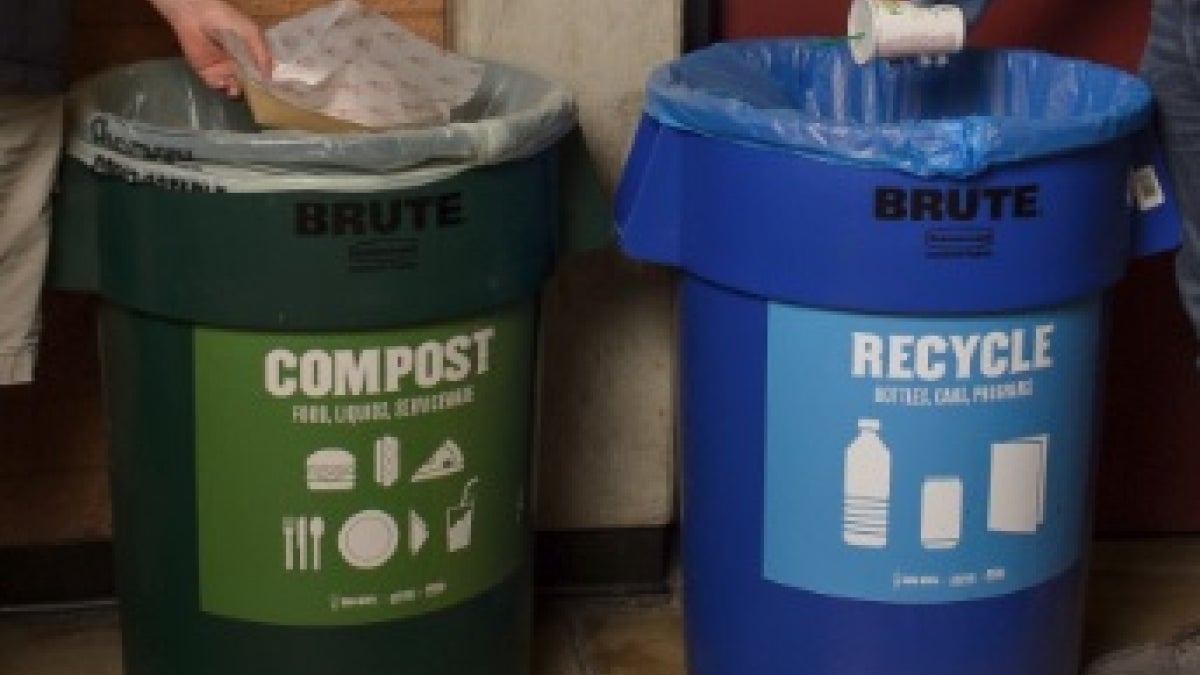ASU students get insider's view of sustainability at the Super Bowl

After fans have left Super Bowl XLIX on Feb. 1, ASU students from the School of Sustainability will head up a post-Super Bowl recycling project the next day.
It’s an opportunity to demonstrate Arizona State University’s continuous focus on sustainability.
“We have the fortunate opportunity to give our students an on-hand experiential opportunity to actually understand sustainability and how it is done in regards to waste diversion by going to the stadium,” said Colin Tetreault, faculty associate at the School of Sustainability.
More than 20 ASU students will be sorting the recyclables from the non-recyclable items in and around the entire stadium.
Most of the sorting and cleanup will be done by hand and is expected to take several hours.
“The students will get to peek into the locker room, almost, of a professional organization like the NFL and how it’s run from a sustainability perspective,” Tetreault said.
The student volunteers, ranging from undergraduates to master’s students, will be treated to lunch at the stadium’s midfield as a thank you for their efforts.
ASU’s commitment to sustainability has been a big part of its involvement in the events around the Super Bowl, and the university even has a booth at Super Bowl Central in downtown Phoenix to highlight its work on the issue. The booth is covered with solar panels, and visitors are able to play hands-on football games powered by the solar energy.
The booth also contains screens playing videos about some of ASU’s accomplishments in the sciences, including the ASU Mars Rover, the creation of the jet pack that can help the military service members run a 4-minute mile, and how ASU collaborates with organizations like the Clinton Global Initiative to support and allow leaders and entrepreneurship.
On the Tempe campus, ASU invited NFL Environmental Program Director Jack Groh to give a lecture Jan. 27 in the Memorial Union to talk about his work.
When he started with the NFL in 1993, Groh said there had never been a can or bottle recycled in a professional sports stadium in the entire country, and no one in sports knew what recycling or waste management was.
Today, Groh said, the Super Bowl is recognized as the greenest professional sports championship in the United States.
“We look at what the benefit is of getting sports involved with sustainability, and I think everyone recognizes the fact that sports attract a lot of attention,” Groh said. “There’s hardly a person in the country who won’t either watch the Super Bowl next Sunday or get deluged by comments of it the next day at work.”
For ASU student Regan O’Brien, who heard Groh’s talk, creating awareness of ASU’s sustainability efforts and helping to show people how to do the simple things like recycle is an important part of a big event coming to town.
“The Super Bowl is a huge party, it’s awesome,” O’Brien, first-year architecture student with a certificate in energy and sustainability, said. “It’s cool how sustainability has become more mainstream, and I think it’s awesome ASU is involved. Sustainability is a buzz word on this campus. I feel like we have our hands in all kinds of pots.”
Written by Samantha Pell, ASU News